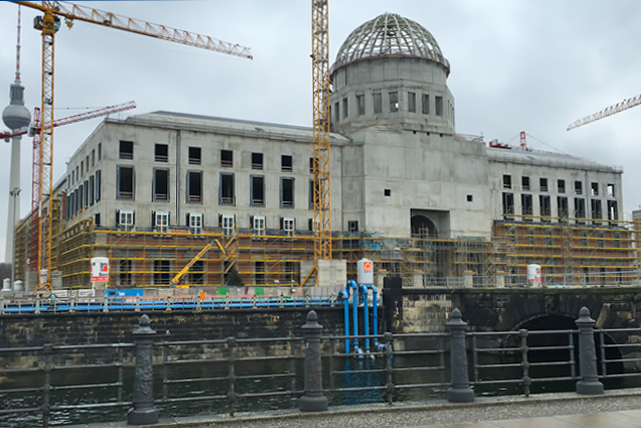Urban Authenticity: Creating, Contesting, and Visualising the Built Heritage in European Cities since the 1970s (UrbAuth)
Research department: Contemporary History and Archive
Project Leader within IRS: Prof. Dr. Christoph Bernhardt
Consortium: Leibniz Institute for Research on Society and Space (Coordination) Leibniz-Centre for Contemporary History Institute for Contemporary History München–Berlin Herder Institute for Historical Research on East Central Europe - Institute of the Leibniz Association Association of Museums (Museumsverband des Landes Brandenburg e. V.)
Funding Organization: Leibniz Association
Duration: 06/2020 - 05/2024
“Authenticity” as the purportedly “original”, “pure”, or “true” character of persons, objects or practices has become a major public discourse, a powerful driver of heritage debates and cultural change and a key research issue in the humanities. From theatre and museums studies to heritage conservation and the historical sciences scholars dispute the ways in which authenticity indicates and triggers cultural change in modern societies. While there is a broad consensus among constructivist approaches that historical authenticity was and is always socially and culturally produced, and that there is no such thing as “the pure” or “the original” in terms of materiality, the case of built heritage seems to challenge this approach.
Here strong academic and public controversies have emerged on the role and impact of materiality for authenticity. We also see serious political conflicts in European urban societies over the reconstruction of buildings and urban areas, from Dresden to Berlin and from Potsdam to Frankfurt, as well as in European cities such as Mostar, Riga, Sarajevo, and Vilnius. Citizens groups, municipal boards and experts are heatedly debating the projects for the reconstruction of historical buildings and urban areas. This project is the first to systematically analyse patterns of such discourses in a transnational historiographical perspective.
The study focuses on public debates and practices of citizens’ initiatives, city councils and other actors in the area of tension between building policy, tourism, migration since the 1970s in cities of the Federal Republic of Germany, the GDR, Poland and France: Nuremberg, Potsdam, Szczecin and Marseille.
The project is particularly interested in image sources as a question of the significance of visual memory for the authentication of the built heritage. Various authentication processes were therefore presented on the basis of 54 profiles with numerous image sources for places in Berlin-Brandenburg and Europe on a dedicated website: urban-authenticity.eu
The project of the IRS analyses Debates on Authenticity in the Context of Urban Development and Migration in Marseille
The research project examines how, in the course of the transformation of Marseille and its inner-city quarters since 1945, individual buildings and areas have been discursively devalued and others have been upgraded and "authenticated" in the media, including monument protection. The project analyses the conflictual processes of social and discursive inclusion and exclusion in the field of tension between economic change, migration, tourism, urban and national identity discourses, in which neighbourhoods have been upgraded or downgraded. Authentication processes in dealing with the historic old town of Marseille were published in the article "Die Entdeckung der Altstadt" in the journal Francia 50 (2023).
Project leader: Prof. Dr. Christoph Bernhardt (IRS Erkner)
Project manager: Dr. Daniel Hadwiger (IRS Erkner)
The following subprojects are part of the research project “UrbAuth”:
Project A: "Air and Light" versus "Preserve the Old Town": Civil Society Conflicts over Visual Symbols in Potsdam (Leibniz Centre for Contemporary Historical Research Potsdam, Prof. Dr. Martin Sabrow, Dr. Achim Saupe, Dr. Anja Tack)
Projetc B: "Friends of the Old Town" and urban planning in Nuremberg (Institute for Contemporary History Munich-Berlin, Prof. Dr. Elke Seefried, Julia Ziegler)
Project C: Commodification of Authenticity in Szczecin (Institute for Historical Research on East Central Europe - Institute of the Leibniz Association, PD Dr. Christian Lotz, Tabitha Redepenning)
Cross-cutting Project E: Visual sources and visual memory of the built heritage Berlin-Brandenburg
Authentication processes at locations in Brandenburg are presented on a dedicated website of the Brandenburg Museum Association: themator.museum-digital.de/ausgabe/showthema.php


